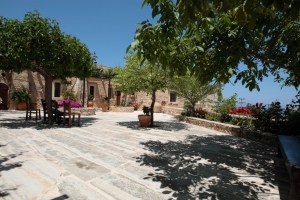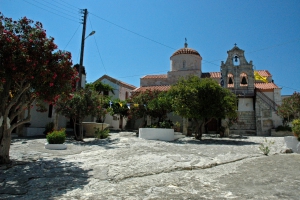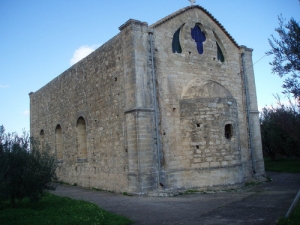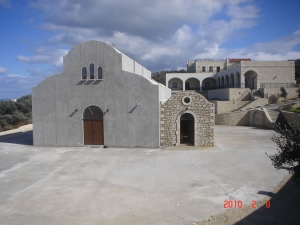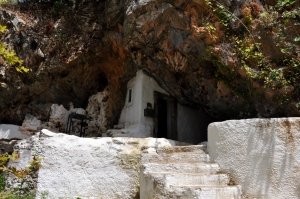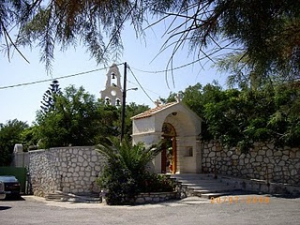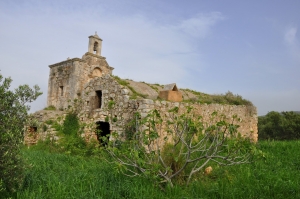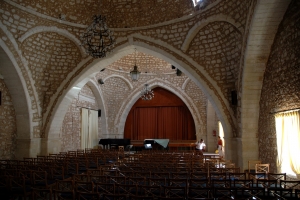The Monastery of Aghia Irini (Santa Irene) is built at an altitude of 260m at the foot of Mount Vrisinas, about 5km south of Rethymnon. It operates as a nunnery and is one of the oldest monasteries in Crete, built before 1362.
The Monastery of Prophet Elijah (Profitis Elias) is built above a hill with panoramic views, 20km south of Rethymno, next to Roustika village. It is a relatively unknown monastery throughout Crete, although it was founded in the Venetian Era and belongs to the most historic convents on the island.
Panagia Halevi monastery is located about 6km south of Rethymnon, on the way to Chromonastiri. It's another Venetian monastery of Crete, which is deserted and surely worth restoring.
The Monastery of St. Anastasia the Roman, the first in Greece monastery dedicated to Her, was founded in 2008 and started its operation in July 2009. Apart from the main church of St. Anastasia, there is the chapel of St. Kosmas the Aetolian.
The cavernous temple of Agia Dynami (Holy Force) is located in Argiroupolis. Within this small chapel there is a huge spring of Holy Force that supplies almost entire Rethymno province with water. Inside the temple there was an impressive mosaic of Christ, which has been now replaced with a simple icon as the initial has been moved to the museum of Rethymnon.
The convent of Jesus Christ (Christ the Savior) is built on the hill of Timios Stavros, in the west suburb of Rethymnon called Koumbes. The monastery was probably initially founded during the Venetian period, like several monasteries and temples in the region.
At the suburb Tria Monastiria of Rethymnon city, just opposite the entrance of the Municipal Cemetery of the city, we meet a ruined stone building with a small church on its roof, in a really beautiful grove.
According to certain Venetian maps and the excavation reports the monastery had a rectangular plan with the cells arranged around the church. Today only the church is preserved with its original plan altered because of its conversion to a mosque and the addition of a chapel at the west.











